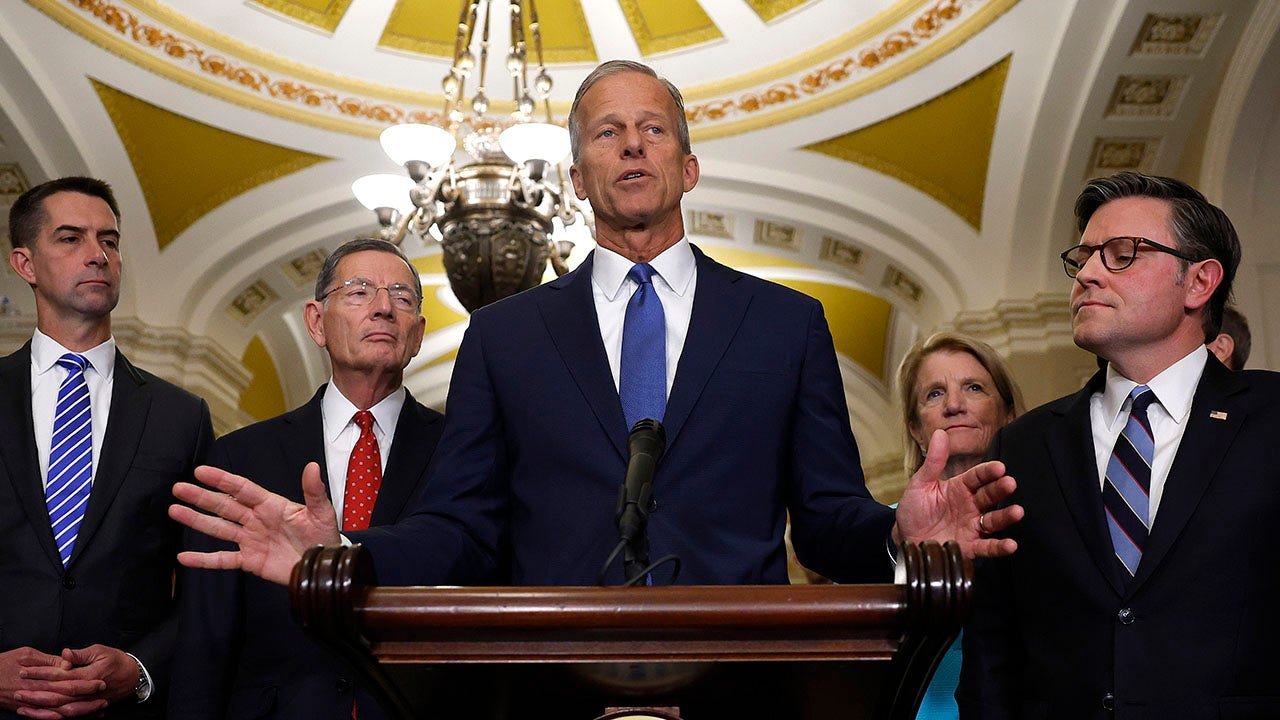
Kalshi’s value is almost double that of its competitor Polymarket. Why?
Here’s the puzzle: two startups competing to conquer an exciting new sector. How could this be the case for Startup A, which seems to be leading the market early? value At a cost of $5 billion, while Startup B – which is not even available in the US at the moment – is He deserves Almost twice that? The answer may have something to do with cryptocurrencies.
The above scenario describes the race between Kalshi and Polymarket to dominate prediction markets, a field that has been around for years but only took off in 2024 thanks to a more lenient regulatory environment. At the moment, Kalshi is gathering new users in the US, who are betting on everything from sports to political events, while Polymarket is still getting its papers in order to operate legally in this country. Both companies announced new funding rounds last week, but Polymarket had a bigger hit at a valuation 9 billion dollars.
The offerings from the two startups are similar to those offered by Uber and Lyft. The only significant difference, apart from the start of the regulatory process, is that Polymarket is built on blockchain rails. Everything is Jogging to add crypto capacity, but it will be difficult to catch up with its competitor, which has been clearing transactions on the Polygon Layer 2 network since its inception, and has a founder who participated in the Ethereum crowdsale while still in high school. Critics can find a lot of faults in Polymarket but no one can question the good faith of cryptocurrencies.
The hardest question is Why Polymarket’s cryptocurrency pedigree makes its value far greater than its competition. This is especially the case at a time when Kalshi captures large portions of the US sports gambling market, outpacing Polymarket in terms of app downloads and active users. The answer here probably boils down to two words: token drop.
Shane Coplan, CEO of Polymarket, shared a mail Last week, cryptocurrencies, including a (so far fictitious) token called POLY, ranked in fifth place, just behind Solana and Ethereum. The company has hinted elsewhere that the currency is likely to fall next year, and if that happens, look for Coplan and Polymarket investors to be in a position to score a windfall.
In the meantime, Calci’s founders may have to get rich the old-fashioned way: building the most popular service, working to expand and defend its significant early market advantage in the US. The task will not be easier considering the fast-moving giants such as Robin Hood and Robinhood. Coinbase They also take a keen interest in the emerging prediction market industry.
The final point in all of this is that both Polymarket and Kalshi are run by flawed CEOs. As mentioned in A Latest magazine featureThere are red flags about whether Coplan has the maturity to launch a fast-moving startup along the way. Meanwhile, Kalshi’s CEO, Tariq Mansour, has a penchant for deceptive tactics that have damaged his company’s reputation.
Finally, there is the question of which startups can execute best in a controversial and highly regulated new industry. For now, Kalshi has an advantage here thanks to its tight legal approach to issues like dispute resolution and ethical controls. Polymarket, on the other hand, has an opaque dispute process controlled by opaque cryptocurrency owners. The company also has a laissez-faire stance in approving contracts, which has led to controversy over the inclusion of “arson market” bets such as those on President Donald Trump’s bets. demiseAnd history Trading wash On its platform. These are challenges that token drops alone will not solve.
Jeff John Roberts
jeff.roberts@fortune.com
@jeffjohnroberts
Decentralized news
The largest stablecoin transaction ever: Coinbase and Mastercard competed to buy BVNK, a London-based company that provides stablecoin services. The cryptocurrency giant has the inside track on closing the deal, which mimics Stripe’s recent $1.1 billion acquisition of Bridge. But with bids at around $2 billion, BVNK could fetch double the price. (luck)
“The largest liquidation event in the history of cryptocurrencies” That’s how one analytics firm described Friday’s market carnage that saw Bitcoin drop nearly 20% and major altcoins tumble 40% before prices staged a modest rebound. The hectic trading day saw centralized exchanges like Binance experience problemsalthough the major DEXes handled the volume without incident. (Decryption)
Banks Come Together on Stablecoins (Again): Goldman Sachs, Santander, BoA and others are creating a consortium to explore the use of stablecoins for payments. The plan, which will reportedly focus on G7 currencies, follows previous efforts by banks to work together on cryptocurrencies – including R3 – that largely faltered. (Bloomberg)
SoftBank Bets on Binance: The payments wing of Japanese investment giant Softbank has acquired a 40% stake in Binance Japan. The deal comes at a time when cryptocurrencies are being liberalized in the country, and as SoftBank is offering rewards for overcoming the cash-first mentality on the part of many Japanese investors. (Reuters)
Block’s new Bitcoin groove: Jack Dorsey’s block, which has wandered the fintech wilderness for years, is thriving again. Its stock price hit an all-time high last week, coinciding with a new feature in the company’s flagship Square payment system that will allow merchants to accept bitcoin without fees. (Cluster)
Main character of the week

Anthony Cowan – Bloomberg/Getty Images
“Bitcoin Jesus,” or Roger Ver, a colorful character from the early days of cryptocurrency who earned his nickname by giving Bitcoin to random people, is back in the news. Ver, who renounced his US citizenship in 2014, was arrested in Spain on criminal tax fraud charges in the US last year – but has now reached the point of colony With the Department of Justice, which will pay him $48 million in exchange for dropping the charges.
Mimi, oh wait

@crypto_rand
The modest gains that followed Friday’s massive market wipeout spawned a series of memes, such as The one above By crypto bulls reassuring each other that the worst is over. But while the broader market feels overheated, the actual path is anyone’s guess.













Post Comment